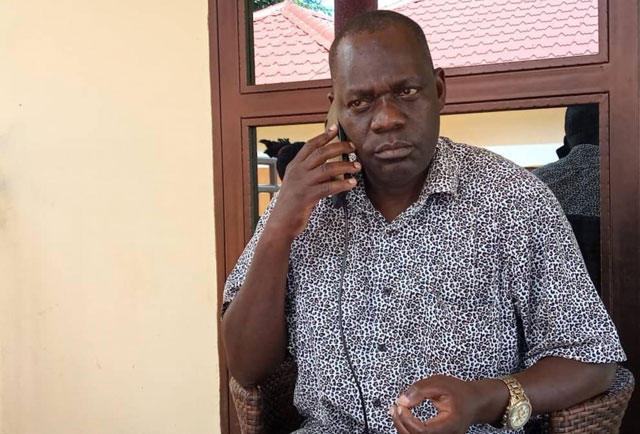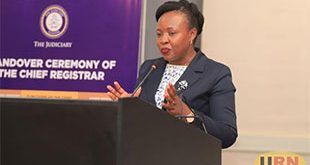
Gulu, Uganda | THE INDEPENDENT | The Uganda Human Rights Commission -UHRC has summoned Kilak South Member of Parliament Gilbert Olanya for alleged hateful speech intended to incite violence against the Balaalo community in the Acholi Sub-region.
In a video that went viral more than a week back, Olanya while meeting some Acholi community members is said to have incited them against the herdsmen who are said to have taken over their land in Acholi.
The Chairperson of UHRC Mariam Wangadya told journalists on Thursday that in the video, the MP said the Balaalo must go, leave Acholi land, and that the people of Acholi should rise and chase Balaalo (pastoralists) off their land.
“Never be timid. Timidity and stupidity are not needed” Olanya is said to have stated in the Acholi language as he also launched a movement dubbed “Chase Balaalo away from the Acholi land”.
Wangadya who read from an English translation of Olanya’s statements said the MP’s acts were divisive, sectarian, discriminatory, unlawful, and tantamount to hate speech against the Balaalo.
The MP was expected to appear before the commission on Tuesday but he requested to appear on Thursday at 10 a.m. However, when Olanya did not appear more than one and a half hours after the agreed time, Wangadya addressed the press and summoned the MP to appear before the commission on Monday.
Olanya who spoke to the media after summons were issued to him said that the call, he made to the Acholi people was only a re-echoing of President Museveni’s order to have the Balaalo evicted.
Wangadya says that every Uganda has a right to live in an area of their choice across the country. She said that the Balaalo just like other members of the community should enjoy this freedom provided they live there legally and that they occupy the land formally.
The chairperson asked the police to enforce the law on sectarianism as provided under the Penal Code Act. She says sectarian and hateful speech has been witnessed severally in society and hence urged all government agencies and the president, in particular, to rise against what she called a “monster”.
Wangadya says she has instructed all human rights regional offices to record cases of hate speech and periodically report to headquarters for further action. She says in a country of diverse cultures and ethnicities, it is barbaric to discriminate against a people.
For years, the Balaalo who originate from Western Uganda and neighboring Rwanda have settled on land in Teso and Acholi region amidst resistance from residents who accuse the herdsmen of forcefully settling on their land.
In 2021, the President appointed Gen David Muhoozi, Col (Rtd) Charles Engola (late), and Col Bright Rwamirama to implement an order to evict the Balaalo from Northern Uganda.
Some Balaalo left the land but others, had by January 2023 sneaked their cattle back into Acholi.
In May 2023, the President issued executive order number 3 to evict the Balaalo, setting a deadline of September 30. The order didn’t take effect and days after the deadline, the President extended the deadline to October 20th, which has since expired with no action taken.
The Balaalo verification committee led by Prof Jack Nyeko Pen-Mogi the acting chairperson of the Uganda Land Commission started investigations into the question of illegal settlement by Balaalo.
According to their report released earlier last month, some Balaalo used manipulation, intimidation, and destruction of gardens to forcefully take over land in the Acholi subregion.
The committee recommended among others that government evicts the illegal settlers from Acholi land. The government has yet to commit to a position following the report.
Last month, President Museveni while meeting a delegation from Acholi urged the people of Acholi to co-exist with the Balaalo. He said he would “move in” after being given “factual examples of the crimes being committed”.
The failure to honor presidential orders and now a call by the president to the people of Acholi to co-exist with Balaalo has left some people in Acholi disgruntled and feeling unprotected by the state.
When Wangadya was asked if the UHRC should not be concerned with the root cause of the conflict rather than only condemning one group, she insinuated that there was no evidence yet to support the argument.
She added that the commission was however investigating the matter but emphasized that her concern now is with hate speech. She said people with land ownership complaints should seek to legislate ways to seek redress.
******
URN
 The Independent Uganda: You get the Truth we Pay the Price
The Independent Uganda: You get the Truth we Pay the Price



